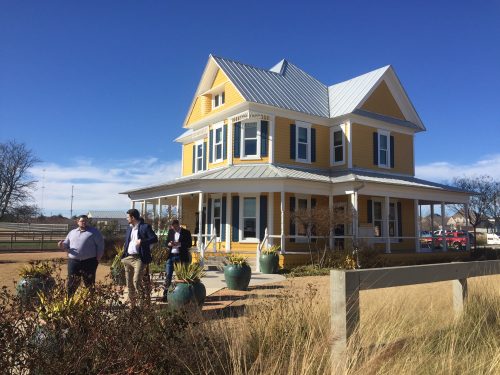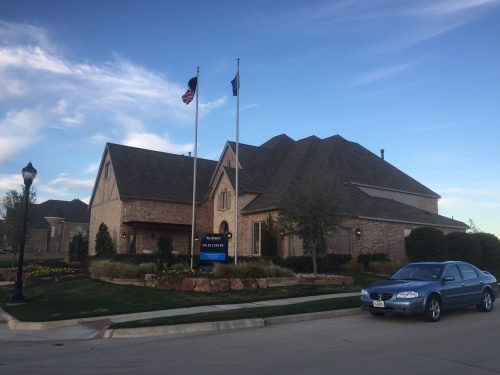From January 18-21, 2017, the Baker Program in Real Estate Class of 2018 visited Dallas, Texas to participate in their domestic intersession trek. The purpose of these treks is to expose Baker students to real estate markets with diverse characteristics, particularly those that are in contrast to our familiar setting of the Northeastern United States and New York City. This disparity was immediately apparent in Dallas – a sprawling city with no physical barriers to growth. Per the latest Census data, Dallas was second in the nation with numeric population growth at 144,704 as well as led the nation with employment growth at 3.6% (US Bureau of Labor Statistics). In addition to the immense growth, Dallas provides a variety to an array of strategies, from urban investment to planned suburban development. This article highlights the afternoon of the third day of the trip, during which students toured suburban single-family residential subdivisions being developed by Hillwood Communities and Toll Brothers.
The Dallas-Fort Worth Metroplex has been a symbol of urban sprawl ever since the Federal Highway Act was passed in 1956, resulting in the construction of a regional freeway system that enabled decentralized growth in North Texas and pushed development further from the downtown cores. While urban development and redevelopment has returned to the downtown areas, the “bread and butter” of real estate development in the Metroplex remains suburban residential subdivisions. On the afternoon of January 20th, the first year students in Cornell’s Baker Program in Real Estate witnessed this suburban residential development first-hand.

The first stop of the afternoon was at Hillwood Communities’ Harvest development in Northlake, Texas. Hillwood is developing approximately 1,150 acres of former agricultural land to include approximately 3,200 single family homes on the site. Guided by Tom Woliver, Director of Planning and Development at Hillwood, Baker students first toured the Faught House, an 1880s-era farm house on the site that was moved from its original location to be used as a centerpiece for the development. Mr. Woliver proceeded to tell the students of Harvest’s “urban agrarian” concept, including a five-acre private farm as well as two community crop areas located within the development. Harvest also rents garden beds to the residents to grow their own crops with guidance from its resident farmer, allowing residents to grow organic food for their own families. Other amenities in the development include a 1.5-mile long central park, resort-style swimming pools, an event lawn area, and a lake.
Price points for Harvest range from the mid-$200,000s to approximately $500,000. Mr. Woliver indicated that buyers are typically second home buyers. Further, in an era when Millennials are stereotyped as seeking urban, walkable communities in which to live, Mr. Woliver indicated that approximately one in four buyers are Millennials that are either single or married but without children, a stark contrast to the overarching trends seen throughout the United States.

The students’ final stop on their trip was in Flower Mound, Texas, where Toll Brothers’ Dallas Division President Rob Paul directed a bus tour of several of the company’s projects in the area. Toll Brothers currently has five developments under construction in Flower Mound, an affluent suburb to the northwest of Dallas. A resident of Flower Mound, Mr. Paul described in detail the development process for each of the projects toured as well as the overall process of subdivision development all the way through home sales.
Tolls Brothers is currently offering homes in Flower Mound with price points starting in the mid-$400,000s, and Mr. Paul indicated that the average sale price for Toll Brothers homes in the Metroplex is in the $800,000s. The average sale price is comparable to Toll Brothers’ operations in Southern California and Washington, D.C. despite substantially higher overall home values in those markets. The greater spread between overall home values in the Metroplex compared to Toll Brothers’ average sale price places significant pressure on the developer to deliver a highly customizable luxury product to its buyers who are paying prices considerably above market norms.
As population and employment growth continue at a staggering pace, the Dallas-Fort Worth residential market continues to expand rapidly. The students of the Baker Program would like to thank Hillwood Communities and Toll Brothers for their time and insights and for providing an exceptional “boots on the ground” experience to the students.
